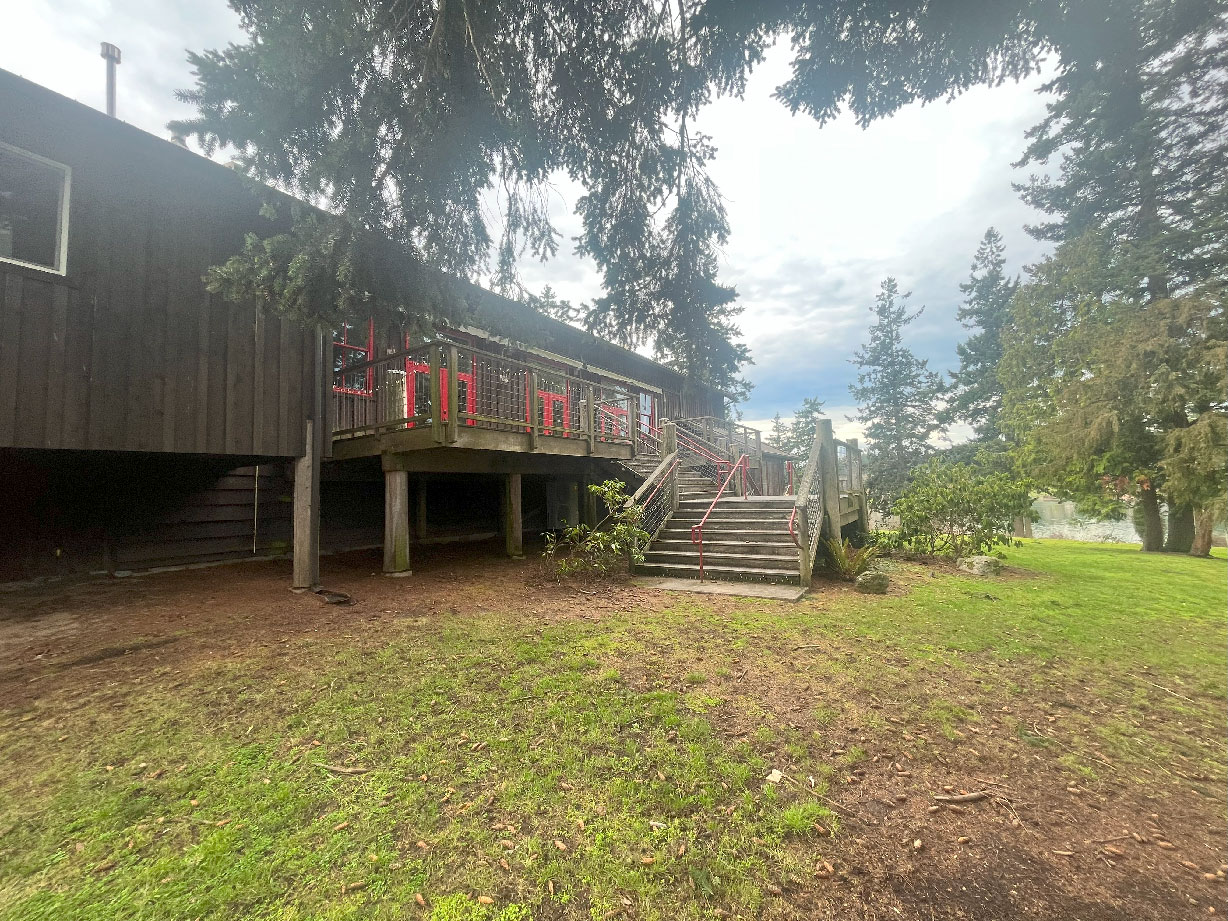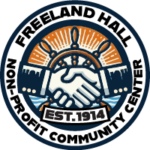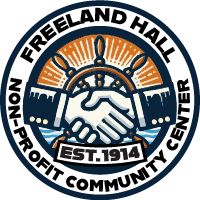The history of Freeland Hall is a fascinating journey that reflects the enduring spirit of community and the evolution of a cherished gathering place on South Whidbey Island.
Situated at the head of Holmes Harbor, approximately 17 miles south of Coupeville, the site that would become Freeland was platted in the 1800s by real estate promoters. Initially known as St. Louis, the area failed to develop into a town. It briefly took on the name Newell, named after the nearest post office at the time.
In 1899, a trio of Seattle visionaries—Henry L. Stevens, George Washington Daniels, and Henry A. White—formed The Free Land Association with a visionary goal in mind: to create a utopian society that embraced communal, socialistic ideals. They laid the foundation for Freeland by platting the area into five-acre lots and officially incorporated it on January 12, 1900. Remarkably, Freeland became one of the earliest incorporated towns on South Whidbey, nearly two decades ahead of Langley in 1918.
The founders of Freeland aspired to create a community where all residents worked for the common good. However, this grand vision of a socialist utopia did not come to fruition, and the Free Land Association declared bankruptcy in 1920.
Nevertheless, the history of Freeland is dotted with intriguing moments, including a proposal to build a canal spanning one-and-a-half miles across South Whidbey Island. The Pennsylvania Syndicate, a venture capital group, considered this ambitious project to connect Saratoga Passage and Admiralty Inlet. Ultimately, the venture was abandoned due to the negligible savings in time and effort it would provide.
In 1902, Mrs. Alma Gearhart organized the First Thursday Club, which had a noble purpose: "the uplifting of women and welfare of society." Their motto, "Do your own thinking," reflected their commitment to independent thought. The club members discussed various topics, including the harm of wearing long skirts, managing husbands, medicine and healing, and property rights of women in Washington State. The First Thursday Club meetings continued, focusing on literary programs and maintaining an emergency box to assist the sick and needy.
The idea of constructing a community hall, which came to be known as Freeland Hall, emerged in August 1914. The Freeland Improvement Club spearheaded the project and reached out to The First Thursday Club for support. The latter contributed $25 to the building fund, with the condition that a separate room would be designated for their use. The hall was built with volunteer labor and was completed sometime after the spring of 1915.
After its construction, the history of Freeland Hall saw some uncertainties about the role of the Freeland Improvement Club, which might have dissolved or played a minor role as the hall's caretaker. However, the First Thursday Club continued to utilize the hall for their activities. In the 1940s, a "Community Activity Club" was formed and sought non-profit status, officially becoming the Holmes Harbor Activities Club (HHAC) on May 15, 1958. The HHAC aimed to improve and maintain the Freeland Community Park's buildings and grounds while promoting social relations and entertainment for the benefit of the community.
Over the years, these two organizations gradually evolved into one, now known as the Holmes Harbor Activities Club (HHAC), which meets on the first Thursday of the months from October to December and February to May. Throughout its history, Freeland Hall has played a central role in hosting community events, dances, and club meetings. In recent times, it has also become a sought-after venue for beautiful weddings and wedding parties, offering a unique blend of historical charm and modern convenience.
In 2001, the HHAC initiated a significant improvement program for Freeland Hall. This endeavor involved strengthening the building's structure by adding girders on the north and south sides connected by cables, reinforcing the north wall with insulation and fire blocks, and installing a concrete foundation under the north side. Additionally, the horizontal siding was refinished and reapplied in a board and batten style, French doors, a transom, and a deck were added, and the building was rewired by Island County. Volunteers played a pivotal role in carrying out these improvements, and their efforts were celebrated with a plaque honoring their contributions. Moreover, HHAC volunteers dedicated themselves to clearing ivy and underbrush to enhance the park area on the north side of the hall.
The Holmes Harbor Activities Club continues to thrive and grow, with a renewed focus on improving and preserving Freeland Hall. The hall is now frequently rented out for special events, and the HHAC conducts its monthly meetings on the first Thursday of each month.
The history of Freeland Hall is a testament to the enduring spirit of community, resilience in the face of challenges, and the commitment of individuals and organizations to safeguard a cherished local landmark. Freeland Hall stands as a symbol of unity and connection, where generations have come together to celebrate life's milestones and create lasting memories. Its rich history continues to unfold, with the promise of many more chapters to be written in the years ahead


